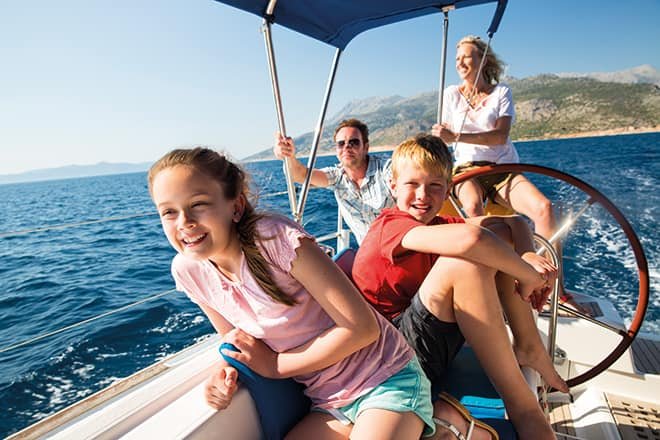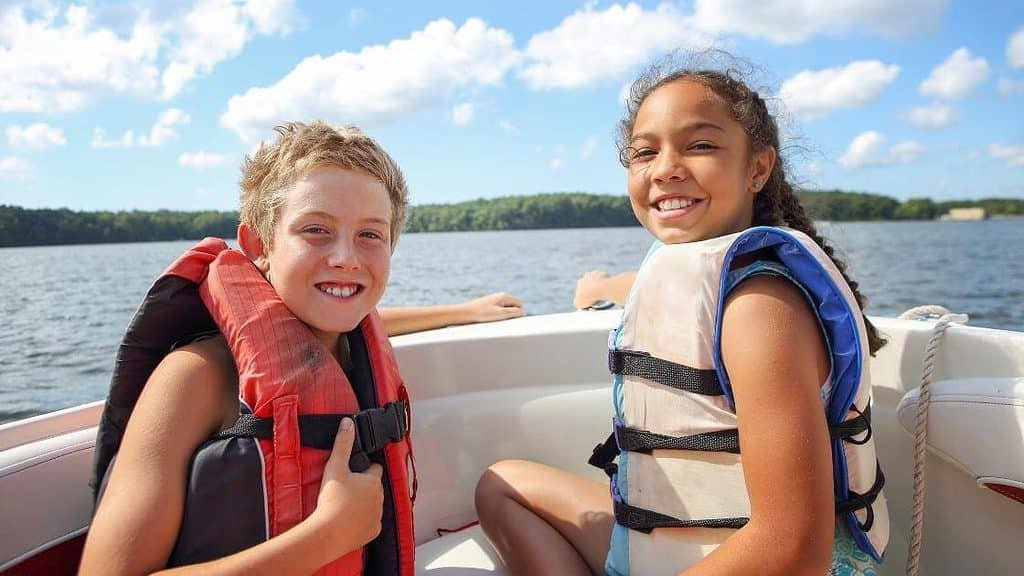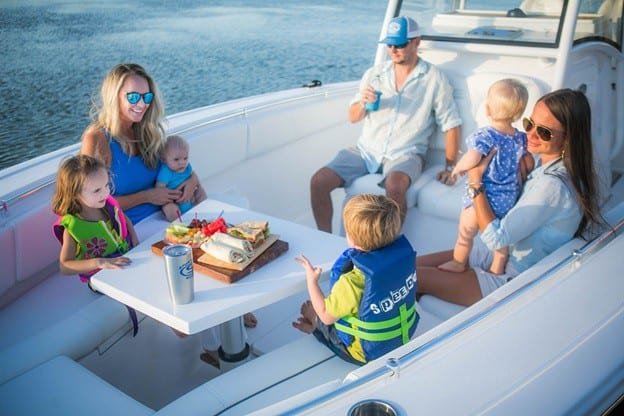Boat trips are excellent bonding opportunities for families and friends. They provide balance and promote a sense of calmness that can lower your anxiety and alleviate symptoms of depression. A boat trip can be a day of fishing or a longer adventure that requires more planning. Whatever you decide, here are some tips to make sure your boat trip goes as smoothly as possible.
Table Of Contents
How To Do Boat Trip Planning and Safety Measures?
1. Proper Boat Trip Planning

Whether you want a day of swimming and relaxing in a cove or an extended excursion, you must plan accordingly. Ensure you have plenty of time to plan and organize your trip. If you embark on a long adventure, you’ll need to pack provisions and prepare for overnight stays.
If you are sailing with children, then you must take precautions and think through all the necessary situations and safety procedures.
Consider consulting other boaters who have had similar adventures. Ensure you check the weather forecast for the water and where you plan to travel. For navigation, weather, and wind speed, you can download marine apps on an Apple or Android like Predictwind and Sailflow. These are one of the Best Boat Trip Planning Apps in the market.
Chart your course with paper charts or a chart plotter to avoid running aground. Calculate your fuel needs, mileage, and the time and distance you expect to travel.
Plan for the unexpected and have a backup plan when making your itinerary. Changing course during a boat trip isn’t uncommon, and you’ll want to ensure you’re as prepared as possible.
Make any reservations you might need on your boat trip, from marinas to public anchorages. If you plan to cross international borders, ensure everyone on board has their passport. You’ll also need an updated insurance policy covering you in other countries, so make sure all your paperwork is current before you head out.
2. Focus on the Safety of Passengers
The safety of the boat and the passengers is the most important part of a boat trip. Check your boat for leaks and other issues, like the navigation system, to see if it needs any repairs. Ensure your first aid kit is fully stocked and your fire extinguishers are working correctly.

One of the most important parts of boat trip planning is, Be sure your boat has all the necessary items for every passenger to ride safely. Everyone on board should have enough personal flotation devices to ensure their safety and prevent drowning. Even those who are great at swimming need life jackets. Accidents happen, and falling out of a boat can cause disorientation and injuries that can prevent people from being able to swim.
Ensure the U.S. Coast Guard approves the life jackets you provide and that they fit correctly for the size and weight of everybody aboard. Of the boating deaths that occurred in 2021, 81% drowned, and 83% didn’t wear a personal flotation device. Throwable personal flotation devices can help tremendously in overboard situations.
Give someone who isn’t going on your trip with you an itinerary so they can check in and know when to worry in case of an emergency. That itinerary can help people find you much easier if you get lost or find yourself in a bad situation.
Ensure you’re familiar with state boating laws in your area and consider taking a boating safety course to ensure you’re fully prepared for your excursion.
You can learn more about safely crossing over wakes and other techniques that increase your confidence in keeping everyone safe who boards your boat.
3. Prepping the Boat
You can get a free vessel safety check to verify your equipment at your local U.S. Power Squadron or Coast Guard Auxiliary. A vessel safety check will inspect your hull, hoses, tanks, and more.
Check and clean your filters if necessary and stock up on replacement parts if you’re going on a long trip. Ensure you have your dock and travel lines, be sure your very high frequency (VHF) radio works, and brush up on your radio etiquette and working channels for areas you plan to visit. Personal locator beacons are excellent additions to your safety arsenal as well.
Fill your fluid levels like water tanks, fuel tanks, and the tender. Clean the strainers and check your battery and generator power. Check your emergency flares to see if they are expired and ensure your sound signals fully function. Bring enough flashlights and navigation lights for everyone. Ensuring your boat is in tip-top condition can set your mind at ease on your excursion.
4. Packing and Provisioning
If you’re planning a long boat trip, you’ll want to pack enough necessities without overpacking and taking up unnecessary space on your boat. If you already have your boat, you’re probably looking to stock it with kitchen supplies like dishes, utensils, and cookware. Fishing is a fantastic way to pass the time, so ensure you have your fishing gear and tackle before you hit the water.

You’ll want to store cleaning supplies, non-perishable foods, plenty of towels for bathing and swimming, and toiletries for yourself and your guests. You can leave these items on your boat all year round for all your trips, big or small. Use soft luggage and encourage your passengers to do the same to maximize your storage space on your boat.
Pack a small bag that is easy to grab in the case of an emergency, with essentials like your wallet and other items of importance. Pack some extra sunglasses in case you need them. Sunglasses protect against the sun’s harmful rays, but they can also be helpful in your navigation of the boat. The sun’s reflection from the water can be blinding, and your shades can also protect you from splashes of water that can distract you from driving the boat.
You should always keep prescription and anti-nausea medication on board for you and your family. Sea sickness is so common that one of you is bound to need it. Ensure you have enough food for everyone on board for the planned trip and a little extra in case of an emergency.
Unpack everything that you can to maximize space and leave the cardboard behind. Shop in the grocery store’s bulk section to save money and stock your boat with snacks. Some excellent snack options to bring aboard are nuts and dried fruits, chips, granola bars, fruit snacks, and pudding cups.
Get some non-perishable items you can use in various ways to cook while on the water. Some excellent staples to keep on hand are beans and lentils, rice and oats, sugars, cereals, canned goods, powdered milk, and pasta.
Recreational items you might want to take include binoculars, cameras, and something for entertainment like books, DVDs, or card games that don’t require an internet connection and can provide some fun on the water when the sun goes down.
You’ll want to ensure that you prepare your home for your getaway. Winterize your home if you’re planning to be gone all season and store anything of value. Enlist someone you trust to check on your home frequently and collect your mail.
Conclusion
Boat trip planning can be challenging to plan because there’s so much to consider, but it’s well worth it. Being on the water is good for the soul. Just ensure you’re ready by following these tips, and then make a break for the water for an extraordinary voyage.
So, why are you waiting for it, Let’s get it on sailor! Let us know your thoughts on the best boat trip planning and safety measures one should take.








